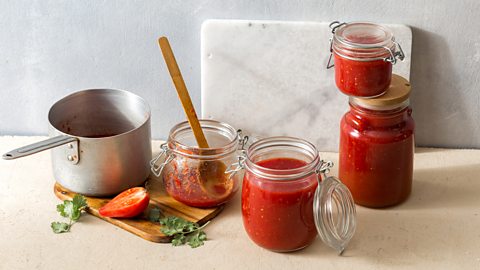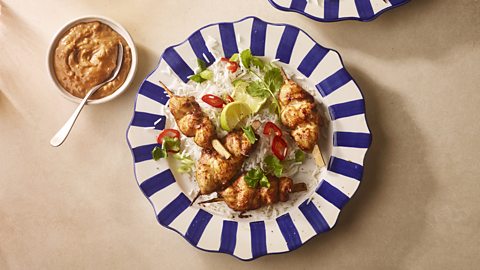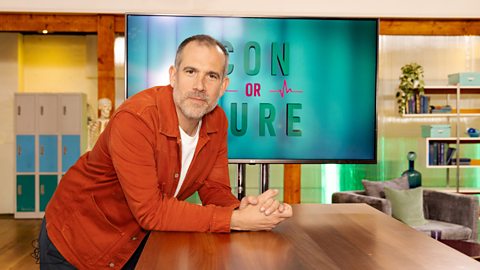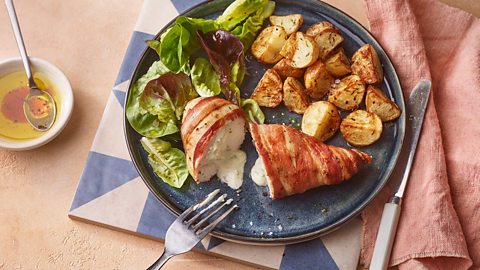What is zinc and why do we need it?
Our bodies can only get this important mineral from food, but we don’t always absorb it easily. So, how can you make sure you’re getting enough, and what happens if you don’t?
By Laura Tilt
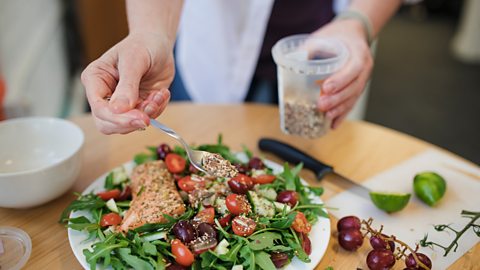
Zinc is an essential mineral that we need in small amounts to stay healthy. Like other minerals, the body can’t make zinc, which means it must come from our diet. And because zinc isn’t stored in large quantities, a regular intake is needed to keep levels in the healthy range.
Why do we need zinc?
Zinc is important for many aspects of our health. More than 300 of the body’s enzymes, which are proteins that accelerate chemical reactions, rely on zinc. This means zinc is involved in many processes, like the digestion of protein and carbohydrates and normal DNA production. It also plays a role in healthy bone development, as it helps calcium and other minerals attach to the structure that makes up bone.
Zinc acts as an antioxidant, helping to protect cells from damage and is involved in the normal functioning of your immune system.
Zinc is also important for normal reproduction and fertility. In females it plays a role in egg development, while in males it’s involved in sperm production and motility. In babies and children, it supports the growth and development of the brain and nervous system.
Can zinc really help a cold?
Zinc plays a role in your immune function and has been a common ingredient in cold remedies since the 1980s, after studies showed it might help stop cold viruses from replicating – at least in animals.
But recent research shows that zinc is better at shortening a cold than stopping it. A review of over 30 studies found no proof that zinc can prevent a cold, but some studies suggested it might cut the length of one by a day or two if taken early.
However, because there are differences in the type of zinc taken and the dose and length of treatment, experts say they’re not confident in the evidence. There are also side effects to consider – high-dose zinc treatments can cause stomach upset, nausea and a metallic taste.
How much zinc do I need?
In the UK, the recommended daily intake of zinc for adults is 9.5 milligrams for men and 7 milligrams for women. Women who are breastfeeding need an extra 6 milligrams a day during the first four months of breastfeeding, and an extra 2.5 milligrams after that.
Chicken and seafood paella
This easy paella is made with a medley of zinc-rich treat ingredients
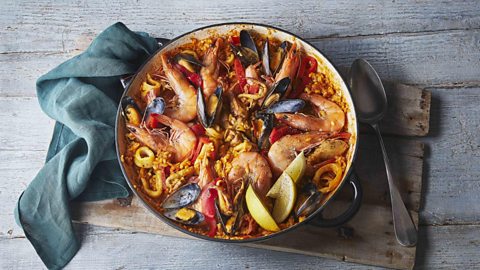
Which foods contain zinc?
Foods that are good sources of zinc include:
- Shellfish, with oysters being the richest source
- Meat
- Peas, beans and lentils
- Nuts and seeds
- Wholegrains like wholemeal bread and brown rice (zinc is stored in the outer layer of the grain, called the bran)
- Eggs
- Dairy
Although fruits and vegetables are a good source of many vitamins and minerals, they’re low in zinc. And the zinc in plant-based foods like beans, nuts and wholegrains is not as easily absorbed by the body as the zinc from animal foods. This is because plant foods also contain phytates, (a form of stored phosphorus), which binds to zinc in the gut and prevents it from being absorbed.
Research shows that zinc levels are lower in people following vegetarian and vegan diets, and zinc deficiency is more common in countries like Turkey, Egypt, and Iran where the phytate level of traditional diets is high.
The body does have clever mechanisms that help it adapt to changes in zinc intake though, reducing losses or dialling up absorption to help maintain healthy levels of zinc. This explains why zinc levels in people switching to a plant-based diet have been shown to be relatively stable after an initial drop.
There are ways of preparing plant foods that can help to improve zinc absorption too. Soaking and sprouting beans and grains can reduce their phytate content, as does fermentation. This means more zinc is absorbed from leavened bread made using yeast or a sourdough starter (fermenting methods) than unleavened flatbreads.
Foods that are good sources of zinc
| Food | Serving size | Zinc content (mg) | Recipe ideas |
|---|---|---|---|
| Beef mince | 125g (quarter of a 500g pack) | 4.8mg | Slow cooker beef lasagne |
| Roast chicken | 170g (large portion) | 2.6mg | Leftover chicken curry |
| Cooked crab | 100g (small pot size) | 6.6mg | Crab linguine |
| Oysters | 1 oyster | 6mg | Baked oysters |
| Quorn | 100g | 7.6mg | Vegetarian cottage pie |
| Firm tofu | 75g | 1.5mg | Smoky tofu tacos |
| Oats | 50g | 1.2mg | Peanut butter overnight oats |
| Wholemeal bread | 2 slices | 1.3mg | Use brown bread for toast and sandwiches |
| Split red lentils | 50g | 1.7mg | Nadia’s lentil soup and soda bread |
| Shelled hemp seeds | 30g | 3mg | Use hemp seeds as a crust for fish or sprinkle over porridge for a nutty flavour. You can also blend into this fridge raid pesto in place of nuts |
| Sunflower seeds | 2 tbsp | 1mg | Add to cereal or salads |
| Cashew nuts | 30g (small handful) | 1.7mg | Creamy red pepper and cashew pasta |
| Egg | 2 eggs | 1.3mg | Scrambled eggs with kale and spinach |
| Semi-skimmed milk | 250ml | 1mg | Banana smoothie |
Is zinc deficiency common?
Globally, The World Health Organisation estimates that 30% of the population is at risk of zinc deficiency. But in the UK and other developed countries, zinc deficiency is much less common. Recent data from the National Diet and Nutrition Survey (a large rolling study of nutrition intakes in the UK population) found that 6% of men and 7% of women had inadequate zinc intakes.
Factors which increase the risk of developing a zinc deficiency include:
- Not eating enough zinc-rich foods, or eating a plant-rich diet naturally high in phytates
- Having a gut condition like untreated coeliac disease or inflammatory bowel disease, as these conditions can affect how nutrients are absorbed
- The long term use of some medications like diuretics and those used to treat heart failure
- Kidney disease, as zinc is lost in dialysis
Vegan 'chicken' gyros
Using Quorn in this vegan gyros recipe will provide plenty of zinc for those on a plant-based diet
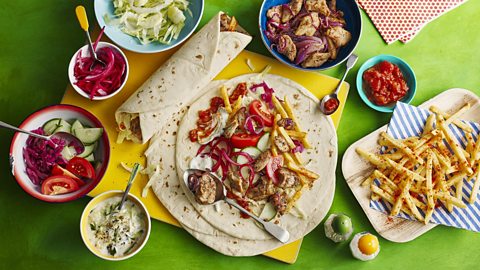
Will cutting down on meat lead to zinc deficiency?
Not necessarily. It’s true that red meat contributes around a third of total zinc intake for men and women in the UK, but a move to a more sustainable diet doesn’t have to mean giving up meat entirely.
The British Dietetic Association’s One Blue Dot campaign (which aims to support the move to sustainable diets) found that it’s possible to get enough zinc while eating less red meat (up to 70 grams a day) – as long as you include plenty of other zinc-rich foods. A balanced plant-based diet can also provide enough zinc, as long as zinc-rich foods are included a few times a day – see below for some ideas.
Some simple ideas for supporting your zinc intake if you’re eating less meat are:
- Choose a breakfast cereal with added zinc or make porridge and top with nuts or seeds
- Snack on wholemeal toast with peanut butter
- Have a handful of nuts and seeds each day – pumpkin seeds, hemp seeds and cashews are good choices
- Add lentils and chickpeas to soups, stews, salads and curries
- For dinner, try swapping half the meat for quorn or tofu
What about supplements?
If you choose to take a zinc supplement, it’s important not to take too much, as high doses can reduce the absorption of copper and iron, two other essential minerals. The NHS advises not to take more than 25 milligrams of zinc a day.
All content in this article is for general information only and shouldn’t replace the medical advice of your doctor or any other healthcare professional. Always consult your GP if you’re concerned about your health.
Originally published May 2025
